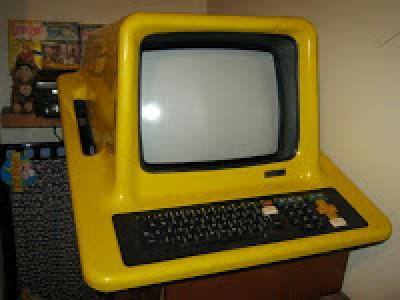Trade finance remains poor relation of populist state industry hand-outs
As the 1980s dawned the Silicon Valley of the South Seas was the Hutt Valley. Apple’s Steve Wozniak cruised the valley in awe of the digital presentation skills of the state television operation based on the Avalon studios. The state’s own physics and engineering laboratory was at work on advanced integrated circuitry and superconducting.
A privately held company variously known as Systems and Programmes Ltd, SPL, and Progeni had designed a desk top product that had taken interactive screen graphics further than any other developer had taken the science up to this time.
More significantly still, the company had a branded product ready to sell. Better still, it had a customer ready and waiting, wanting to buy the new product range aimed which was aimed at the education sector.
At this time China had not yet become the market star it was to become several decades later.
China was then a nightmare for anyone exporting anything other than raw commodities. The problem was in getting paid – a problem that continues now still throughout Asia.
The deal was an early forerunner of what became an established yet still unspoken and thus unrecognised problem
Samples and drawings are required (and copied). Everything was, and still is, forthcoming but payment.
This was before the era in which China transitioned to a virtual free market economy.
The specific selling proposition underpinning the Lower Hutt desk tops was the graphical user interface and thus their application in practical teaching.
A Chinese mining company said it wanted thousands of the machines in order to instruct employees in safe mining practices. The photograph of the Poly desk top computer, as it was known, shows its custom moulded rugged sealed casing. (Photograph courtesy Retrowe Museum.)
The demand was now identified. But in the classic tradition of such deals in the region then as now, the method of payment remained floating in the air.
Banks at all stages within China and outside it were involved in order to devise a scheme of credit finance.
More samples were sent to China.
At this time New Zealand’s rigorous import licensing/quota restrictions were still in force.
Steel, the logical counter trade commodity in the deal was out of the question because of the need to protect New Zealand Steel.
At this time the Chinese had not yet developed their consumer range products such as whiteware to the stage of being considered as barter trade products.
SO the deal languished. Until that is someone thought of bicycles. New Zealand didn’t make them. The kit assemblies of the Raleighs and Rudges of the era was confined to the back rooms of the retail bike shops.
SO there was no concerted vested-interest lobby against bicycles becoming the counter trade counterweight to the sending to China of the desk top computers.
A test shipment of bicycles duly arrived in Lower Hutt. And failed to sell.
The early enthusiasm for bicycling had waned, and was not to reappear until much, much later when it again became viewed as a fashionable, rather than an eccentric, pastime.
The episode which amounts to one of lost opportunity, remains of value now because it points up the lack of export trade finance capability in New Zealand, a nation which no longer even has its own merchant bank, or one to rank with the international version.
The conditions of the era described here exist substantially to this day. The existing banking structure is attuned to restricting risk to the taking of real estate collateral.
The official trade promotion and development departmental apparatus refuses to acknowledge even the chronic problem now of receiving payment for manufactured or processed goods sent to Asia.
It has a see-no-evil stance on things like Asian buyer fees for tender and tender deposits along with endless and unacknowledged copying problem.
A favoured official dead-end referral is to the development banks such as the Asian Development Bank.
New Zealand has never really been on the must-help list of these banks, in spite of a generalised reluctance to admit it.
| From the MSCNewsWire reporters' desk | Wednesday 14 December 2016 |

